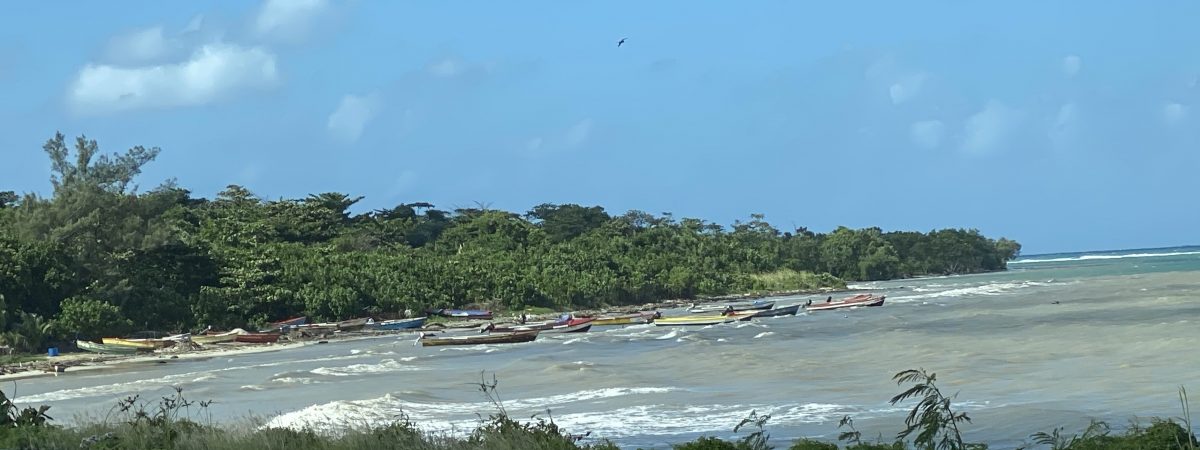For context, I started my working life as a transport economist, working largely in conjunction with Crosville Motor Services, a branch of the then National Bus Service, which operated in the Northwest of England and North and West Wales.
It was during a time when local government could subsidize rural transport; I was working for the county council.
For the longest while I’ve struggled to understand how Jamaica’s public transport sector survives. For JUTC, the public bus service provider for the Corporate Area, the answer is simple: all of its inefficiencies—its operations are loss-making and it is overstaffed—get passed on to the tax payer to cover in subsidies (now about J$7 billion) to cover a projected loss for FY 2020-21 (before COVID) of some J$11 billion.
The recent report by the Auditor General covering 2014-19 about the range of malfeasance within the company merely puts flesh on the bones of some of that inefficiency. In past years, we have known that the enterprise was a ‘feeding trough’ and used as one of several avenues for political party favours in terms of ‘jobs for the boys’. We learned more about the corrupt practices of staff (namely the ticket scam) and how that was dealt with mainly by moving to cashless ticketing. Those kind of malpractices aren’t surprising in any enterprise that handles large amounts of cash without appropriate checks and balances and has a large staff complement. The main points of the report, as summarized by The Gleaner bear this out (my stress):
1. Board of directors failed to implement the necessary internal controls to protect the financial resources of the company.
2. Had an unapproved staff capacity costing an accumulated $1.15 billion that was not leveraged for operational efficiency.
3. Management exceeded the overtime budget by $728.6 million, despite excess staff capacity.
4. Failed to advertise vacant positions and engaged staff in unapproved positions or without the minimum qualifications in breach of its human resource administration policy and procurement guidelines.
5. The Ministry of Transport and Works was deficient in its oversight of the JUTC to ensure adherence to the Public Bodies Management and Accountability Act and the GOJ Corporate Governance Framework.
6. Board failed to implement recommendations of the Internal Audit Committee.
7. Ministry did not ensure that the board adhered to the Risk Management Framework to protect the interest of the JUTC
Other issues in the report:
1) Net accumulated shortage of more than 231,000 litres of fuel valued at approximately $36.5 million between 2014-15 and 2018-19.
2) 36.5 per cent decline in ridership between 2014-15 and 2018-19.
3) 11.6 per cent decline in available bus service between 2014-15 and 2018-19
4) $178.7 million of obsolete spare parts at end of 2018-19.
5) 16 buses (average) out of service for 139 days (average) awaiting parts.
So, in an area where people are heavily dependent on public transport, JUTC managed to under provide, significantly, and faced a massive decline in ridership. That, at a time when fares are relatively low.
JUTC loses riders to both private minibuses and taxis, but these are also not viable. However, they are limited in their ability to raise fares and have faced sharp increases in costs. I’ve long guessed that these private operators—especially the illegal/‘robot’ operators—stay on the road—as distinct from stay in business—because they are quasi-criminal operations. Simply put, they are loss-makers in an otherwise profitable activity.
As such, they can only really survive as long as they help ‘bring in’ substantial benefits. One obvious route (no pun) was as a simple cash cow. In 2015, the JUTC chairman (Dr. Garnett Roper) cited the “relationship between the irregular [hackney carriers using their vehicles as robots], the illegal and the criminal. A substantial number of the taxis that you see on the road are owned by sections of organised crime.”
Other research points to links between taxi operators/drivers and scamming activities. In one of this simple deduction exercises, I figured out some things about how it works.
Put simply, the economics of privately operated public transport in Jamaica operations don’t make sense: fares are too low to cover costs; fuel and taxes drain them, severely. So, it’s no surprise to me that we are seeing that squeeze pinch hard. Why? Economic shocks have a way of pushing illicit activities out from their cover. So, the extreme drop in ability to operate must weed out quickly the marginal operators, at least, and those who have to rely on volume to even appear viable. So, when the taxi operators are literally begging for mercy it’s because they really have reached a tipping point. The fact that they are willing to say they operate in a corrupt system is like the dying screech of a seal about to get eaten by a whale.
Jamaica’s public transport system needs a complete overhaul, but I doubt if that will happen soon or fast, not least because the many vested and dark interests need to have their cases properly addressed. Few modern public road transport systems have avoided these massive shake outs, and the economic carnage that is associated with them is unavoidable and painful, and I can’t see how Jamaica’s can be any different.


